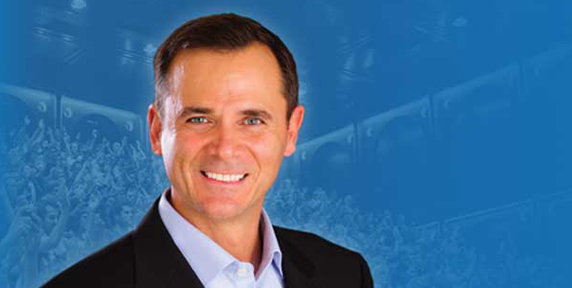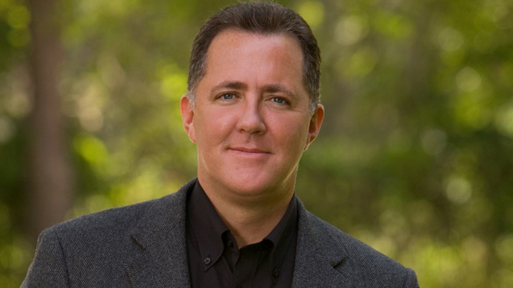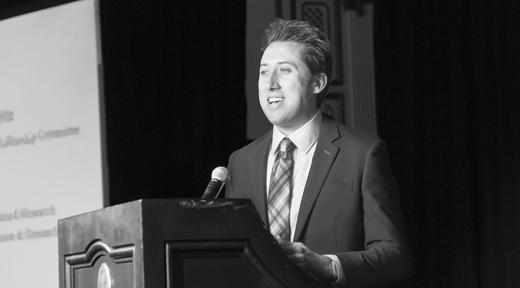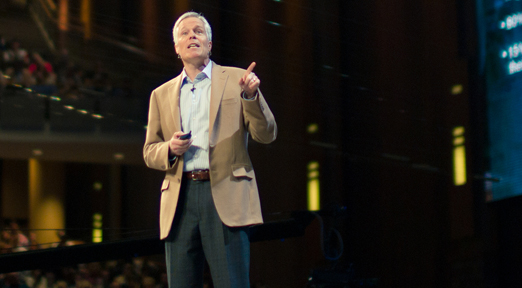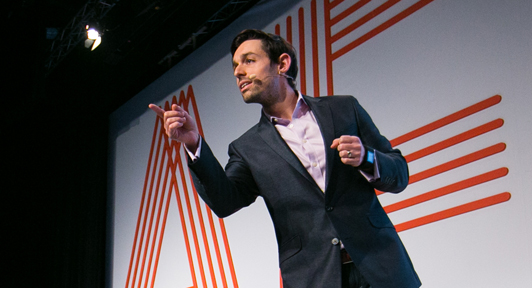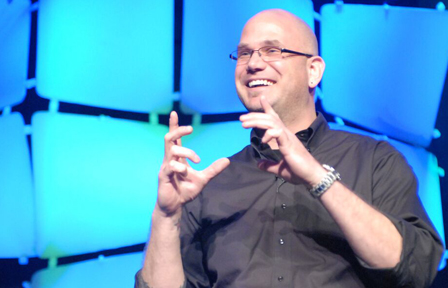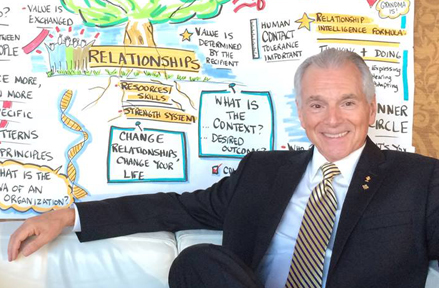
Relationships, Customer Service and Success with Jim Cathcart
| Actor Matthew McConaughey upon receiving the Academy Award said, “My hero is Me ten years from now because he is so much better than I am today.” I’ve seen people transform their lives and become multi-millionaires by using this simple question to start the process. | |
| |
 | You refer to yourself as a Motivation Expert – what is the most challenging part of sparking motivation in others? |
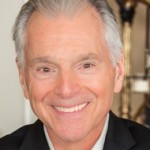 | Motivation is rooted in "motives." If you know your motives, then action will follow. So, first you must know what people care about or help them determine what matters most to them. In some cases this means showing them why they should care more about quality, excellence, trust, integrity, service or relationships. Once there is an agreement on motives, then action can be stimulated, thereby creating motive-action - a.k.a. motivation. |
 | This is a great quote in one of your books, “How would the person I wish to become do the thing I’m about to do?” Can you offer any tips on how to implement this way of thinking? |
 | I call this the “Daily Question” - and recommend that people ask it often each day. It causes you to use the "better you" (your future self) as your primary role model. Instead of trying to be like someone else you are simply learning from others as you are looking to the more mature, enlightened, professional and skilled version of yourself to be your role model.
Actor Matthew McConaughey upon receiving the Academy Award said, “My hero is Me ten years from now because he is so much better than I am today.” I’ve seen people transform their lives and become multi-millionaires by using this simple question to start the process. |
| UpServing is contrasted with UpSelling. UpSelling has the goal of increasing the transaction, getting a bigger sale. UpServing has the goal of increasing satisfaction, a happier customer. | |
| |
 | You coined the term, “Up-Serving.” Can you please share how one develops the mindset needed to be successful at Up-Serving? |
 | UpServing is contrasted with UpSelling. UpSelling has the goal of increasing the transaction, getting a bigger sale. UpServing has the goal of increasing satisfaction, a happier customer. UpServing will lead to more new sales than UpSelling because it is about giving the customer more of what he or she hoped for (here’s how to get even more value) instead of simply trying to get them to buy more (do you want fries with that?).
Leaders need to emphasize daily the importance of increasing Satisfaction, thereby increasing customer loyalty as well. |
 | Among your many talents - as a speechwriter, sales strategist, author, and coach - you also perform and write music. How does music inform your work as a business coach and other areas of your professional life? |
 | As a musician I am back at the stage that my speaking career was at 20 years ago. I perform at clubs, wine bars, art festivals, special events and house concerts. In these settings I’m the guy in charge of set-up and staging, pleasing the customers, building a fan base, seeking new gigs, doing a good show even when I’m not at my best, learning constantly, rehearsing and collaborating, writing songs, jamming with other musicians, playing or singing harmony instead of lead sometimes, and much more.
It keeps me humble, I think, and keeps me conscious of all the operational work that is required to make any endeavor truly succeed. I still do my own work and I respect others who do the same. |
 | How can a non-musician use music as a means of motivation and leading? |
 | It is said that "music is the universal language." That’s true: it transcends all intellectual barriers and reaches people instantly. We can use music in creative ways at work and in events to influence people’s behavior.
On a recent speaking tour in China I was invited to play guitar and sing to a non-English-speaking audience at a nightclub. Many of them didn’t know American music but when I played “Heartbreak Hotel” at full rock n’ roll energy they were all instantly caught up in the music. |
 | Can you describe the “101 Leaders Alliance” and how can people create their own “Alliance” to help serve and advance the quality of life in their community? |
 | When 9-11 changed our world in 2011, I realized that I needed to rethink my career path. What if I no longer had access to air travel and conventions were no longer being held? What value did I really have to contribute if we were at war and life was back to a survival level?
I realized that I am skilled at showing people how to get things done. My early training in civic clubs and youth groups had taught me how to organize, motivate, find resources, and make things happen. This led me into training and development and defined my career. So I formed an alliance among the business, education and civic leaders within 45 miles of my home in Thousand Oaks, California to foster training and motivation in basic ground-level leadership skills. We held a leadership summit, sponsored a series of seminars and lectures over a few years and got a lot of new people ready to take the lead where they live. This can be done best when no single entity is the leader of the cause. Instead join hands and form an alliance. My colleagues in this effort included: The Ronald Reagan Presidential Library Foundation, Pepperdine University, California Lutheran University, California State University Channel Islands, The Boys & Girls Clubs, The Ventura County Community Foundation, The Ventura County Sheriff’s Office and many local business leaders. |
 | In your book, The Acorn Principle, why do you stress that self-awareness and knowing your nature and your abilities are among the greatest life-management skills one can have? |
 | People who know themselves tend to accept themselves more. That leads to being less judgmental of both yourself and others. “If I’m this way maybe others are too.” The less we judge the more we accept, the more we accept the more we cooperate and the better life is for everyone. So know yourself. That is why I wrote the book. It is a self-guided tour of you, what makes you who you are. Self-aware coworkers are easier to work with and more honest too. |
| I define a relationship as: a direct connection between people in which value is exchanged. | |
| |
 | In your book, Relationship Selling: The Eight Competencies of Top Producers. How to Reach the Top 1% in Just 15 Extra Minutes a Day, you discuss how to connect with people profitably, not merely persuading them to buy. In these times of rapid change and short attention spans, is connecting with people a realistic pursuit? |
 | People today are the most “connected” who have ever lived, but many of those connections are superficial and some are only electronic/digital connections. However, all of these are just stages in relationships.
I define a relationship as: a direct connection between people in which value is exchanged. Each connection when seen as a potential asset can be nurtured along a known path from mere awareness of each other to full trust and connection. Each stage of that journey has skills and goals. The more connected we are the more opportunities and resources we have. |
 | What are some of the ways in which standards and relationships impact customer service? |
 | My proudest life achievement is the way my son has turned into an admirable adult. He’s the Director of Human Resources for a Four Seasons Hotel and is frequently ranked at the top by his coworkers.
His company is arguably the best in its field and that is due to their standards. You don’t receive the same treatment at other hotels. They consider their guests to be an asset and they treat them that way. They also consider their staff to be vital assets and they treat them as well as they treat the guests. All organizations have standards but only the best have intentionally raised them and articulated them to all stakeholders all of the time. If you aspire to simply be good then you’ll not become excellent. Success is never accidental. |
| You don’t make your work meaningful, instead you find meaning in your work. | |
| |
 | How can people make their work more meaningful? |
 | You don’t make your work meaningful, instead you find meaning in your work. Meaning is where what you care about intersects with what you do.
When you can see how customers truly benefit, than it shows what your work means to them. When you see the connection between your functions (e.g. sterilizing surgical instruments) and the importance of the outcome (no infections) then your work is more meaningful. We need to talk about the value of our work every day. Tell stories of how we helped people. Make it part of your culture. =============================================== |

